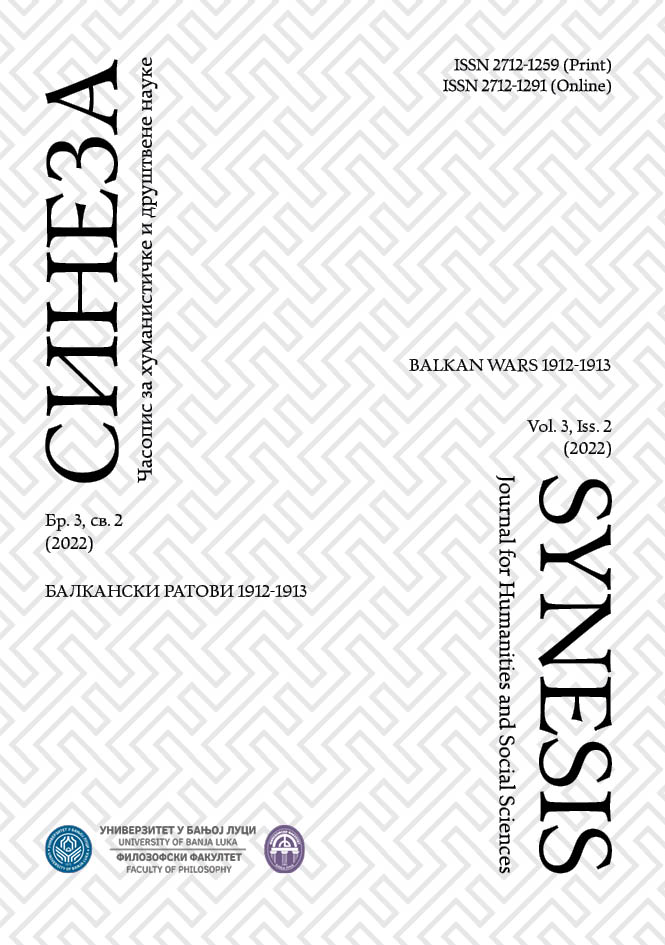Питање ратних злочина у балканским ратовима и њихова савремена интерпретација
Issue of war crimes in Balkan Wars and their contemporary interpretation
Author(s): Biljana StojićSubject(s): Military history, Pre-WW I & WW I (1900 -1919), Between Berlin Congress and WW I
Published by: Filozofski fakultet, Univerzitet u Banjoj Luci
Keywords: the Balkan Wars; great powers; Balkans; Serbia; France; Carnegie Endowment for International Peace; Grgur Jaksic;
Summary/Abstract: In the paper, we have discussed the question of war crimes and violations of international peace conventions during the Balkan Wars of 1912–1913. This issue was raised at the beginning of the First Balkan War by opposing sides–the Balkan League and Turkey–which submitted numerous petitions and complaints, aiming to draw the great powers' attention and support. Indubitably, they got attention–every significant European country and newspaper sent missions and correspondents to the Balkan battlefields to follow war operations and everyday life and to check all those rumors regarding war crimes. Accordingly, a significant place in the paper is given to the mission of the special Commission that the Carnegie Endowment for International Peace sent to the Balkans in the late summer of 1913. The outcome of the Commission's investigation was the Report of the International Commission to Inquire into the Causes and Conduct of the Balkan Wars, published in June 1914. Serbia and Greece were highly displeased with the Commission's approach and report. At the same time, Bulgaria was pleased since it was privileged to gain sympathy from some Russian and British delegates and therefore had an opportunity to promote its version of the Balkan Wars.Furthermore, we have followed this report's impact during the Great War and in the post-war period. The last part of the paper is dedicated to the contemporary interpretation of the Carnegie Report and the Balkan Wars in politics and historiography. The Carnegie Report lacked public attention at the moment of its appearance due to the outbreak of the Great War, but in the last decade of the 20th century, it got all the desired publicity. Morton Abramowitz, the president of the Carnegie Foundation 1991–1997, decided to re-publish this report in 1993, mainly motivated by the war for the dissolution of Yugoslavia. However, with the new print, he gave the report and the Balkan Wars a new meaning, deliberately making links between the wars in 1912–1913 and those in 1991–1995. Abramowitz and the Foundation used the report to promote a new political doctrine of humanitarian interventions all around the world. Carnegie's re-published report had an equally huge impact on contemporary historiography and understanding of the Balkan Wars. All other aspects of the wars are neglected at the expense of not even verified war crimes. We pointed to some leading scholarly works in French historiography highlighting the attitude of French politics regarding the Balkan peninsula in the 20th century.
Journal: Sineza
- Issue Year: 3/2022
- Issue No: 2
- Page Range: 9-32
- Page Count: 24
- Language: Serbian

